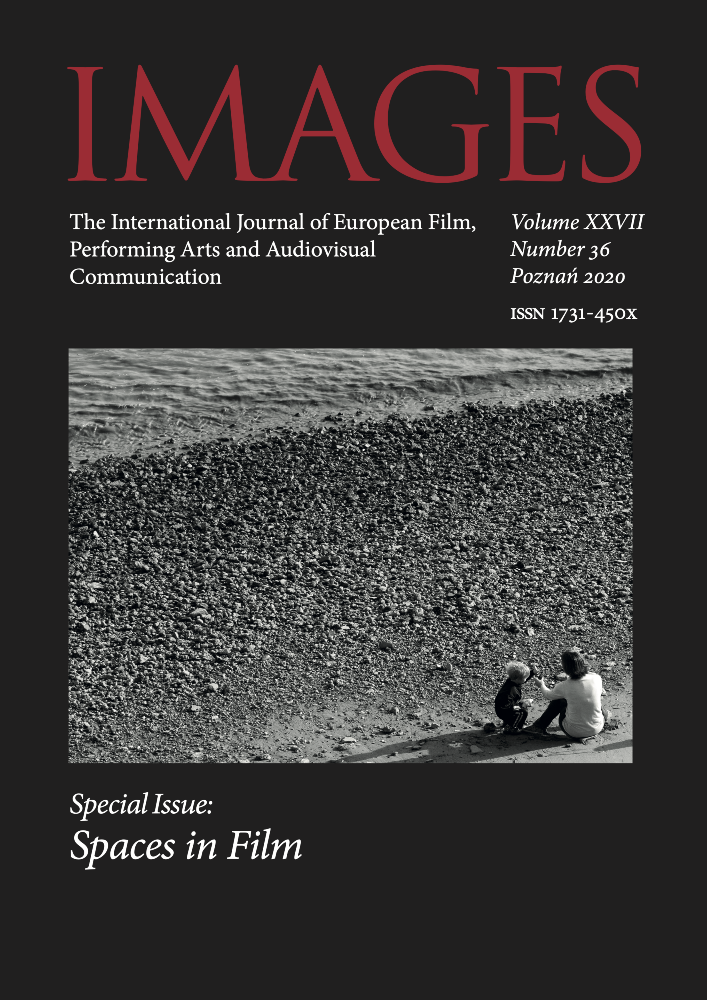Abstract
The article analyzes how the main representative of the Romanian New Wave – Cristi Puiu – uses the visual space of an apartment for staging and presenting the visible and hidden spheres of reality. His film Sieranevada, focusing on a family meeting on the occasion of religious ceremonies commemorating recently deceased senior family member, shows the possibilities of using the language of realism to appeal to the spirituality present in everyday life and to unveil Transcendence.
References
Biblia Jerozolimska, Poznań 2006
Cristi Puiu: wiele rzeczy jest okrytych tajemnicą, <http://film.interia.pl/wywiady/news-cristi-puiu-wiele-rzeczy-jest-okrytych-tajemnica,nId,2402345>, dostęp: 31.03.2020
Czerkawski P., Przyzwolenie na infantylność – rozmowa z Cristim Puiu, „Kino” 2017, nr 6, <https://cinemaenchante.blogspot.com/2017/06/przyzwolenie-na-infantylnosc-rozmowa-z.html>, dostęp: 6.04.2020
Duda S., Niebezpieczne drogi świętości, „Znak” 2010, nr 656, <https://www.miesiecznik.znak.com.pl/6562010sebastian-dudaniebezpieczne-drogi-swietosci-2/#_ftn1>, dostęp: 14.06.2020
Filimon M., „And Thy Word Is the Truth”. Split trajectories in the new Romanian cinema, „Cineaste” 2017, nr 42(2)
Kalbarczyk K., „Sieranevada”. Tango z tradycją, „EKRANy” 2017, 1(35), <http://ekrany.org.pl/odkrycia/sieranevada-tango-z-tradycja/>, dostęp: 31.03.2020
Kornacki K., Bóg i zaświaty w kinie postmodernistycznym, [w:] Sacrum w kinie dekadę później, red. S.J. Konefał, M. Zelent, K. Kornacki, Gdańsk 2013
Luter A., Nałóż mi trochę mamałygi, „Więź”, Kultura 8.06.2017, <http://wiez.com.pl/2017/06/08/naloz-mi-troche-mamalygi/> dostęp: 7.04.2020
Makuszyński K., Szatan z siódmej klasy, Warszawa 1968
Markowski B., Transcendencja w wydaniu amerykańskim. O twórczości Paula Schradera, <http://16mm.pl/2019/05/31/transcendencja-w-wydaniu-amerykanskim-o-tworczosci-paula-schradera/>, dostęp: 9.04.2020
Oleszczyk M., Nie mów, że nie masz trzech godzin na „Sieranevadę”, 2017, wypowiedź na vlogu, http://michaloleszczyk.blogspot.com/2017/05/nie-mow-ze-nie-masz-trzech-godzin-na.html, dostęp: 6.04.2020
Patru A., „A World that Killed God”: An Interview with Cristi Puiu, <http://sensesofcinema.com/2017/feature-articles/cristi-puiu-interview/>, dostęp: 18.04.2020
Piętas M., Biblijny wymiar „Ofiarowania” Andrieja Tarkowskiego, „Kwartalnik Filmowy” 2004, nr 45
Schrader P., Transcendental Style in Film: Ozu, Bresson, Dreyer, Oakland, CA, 2018
Tomaszczuk R., Prawosławne zaświaty, <https://swidnica.gosc.pl/doc/1347064.Prawoslawne-zaswiaty>, dostęp: 31.03.2020
Wróblewski J., Przeszłość zmienia się szybciej – reżyser Cristi Puiu o swoich filmowych projektach, <https://www.polityka.pl/tygodnikpolityka/kultura/1706448,1,rezyser-cristi-puiu-o-swoich-filmowych-projektach.read>, dostęp: 30.03.2020
License
Copyright (c) 2020 Krystian Przybylski

This work is licensed under a Creative Commons Attribution 4.0 International License.

